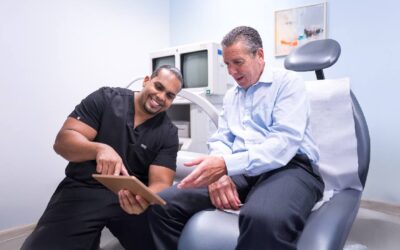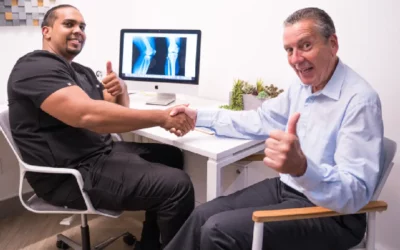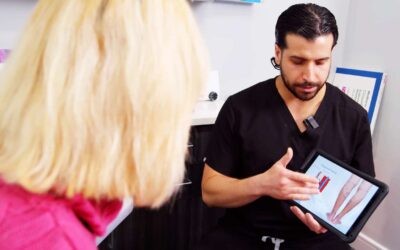How Are Varicose Veins Treated? We Describe the Best Varicose Vein Treatments
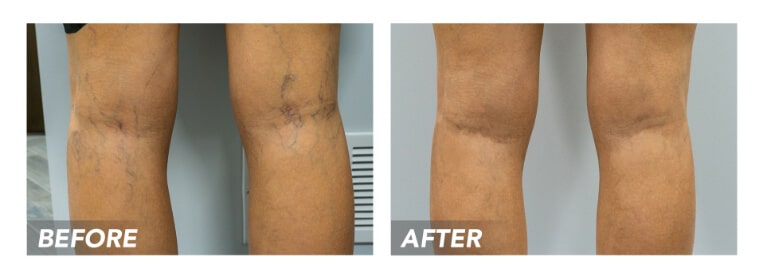
#1. Compression Stockings
Compression stockings are a type of garment that helps to improve blood circulation. They do this by applying pressure to your legs, which helps to prevent blood from pooling in your veins. Compression stockings are usually made from a comfortable, stretchy material and are available in different levels of compression.
Compression stockings relieve symptoms of varicose veins and prevent them from getting worse. Varicose veins are caused by weak or damaged vein walls. When these veins become full of blood, they can bulge and twist, leading to pain, swelling, and cramping. Compression stockings apply pressure to the veins and keep them from dilating.
Compression stockings can improve the symptoms of varicose veins by improving blood circulation and reducing the amount of blood pooling in your veins. This can reduce the swelling and pain associated with varicose veins. Compression stockings are a non-invasive and affordable treatment option and are easily incorporated into your daily routine.
#2. Lifestyle Changes
If you suffer from varicose veins, numerous lifestyle changes can improve your symptoms. Some simple lifestyle changes include:
- Wearing loose-fitting clothing: Clothes that are tight around the waist or legs can put extra pressure on the veins in those areas and make symptoms worse. Choose loose and comfortable clothing, and avoid anything that constricts blood flow.
- Elevating your feet when possible: When you elevate your feet, it takes the pressure off the veins in your lower body and allows blood to flow more easily to your heart. This can reduce swelling and pain and improve blood circulation.
- Exercising regularly: Cardiovascular exercise helps to promote good circulation and can be especially helpful in preventing the recurrence of varicose veins. Some of the best exercises for varicose veins are running, swimming, cycling, and yoga.
- Maintaining a healthy weight: Being overweight puts extra pressure on your veins, so maintaining a healthy weight can reduce your risk of developing or worsening varicose veins.
#3. Endovenous Laser Ablation
Endovenous laser ablation is a minimally invasive outpatient procedure used to treat varicose veins. The procedure is performed under local anesthesia in an outpatient setting. A small incision is made in the skin, and a thin laser fiber is introduced into the vein. The laser is activated, and the vein is slowly heated until it collapses. The laser is then turned off, and the fiber is removed. The incision is then closed with a small adhesive bandage.
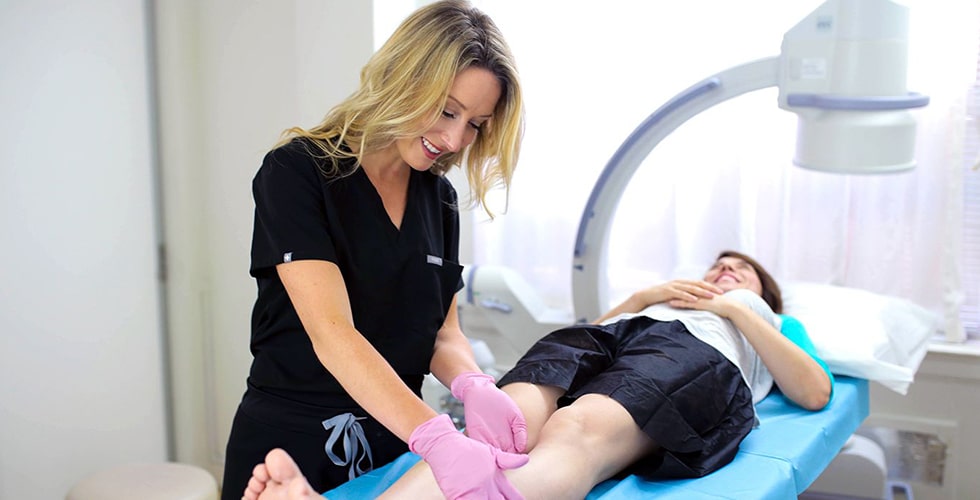
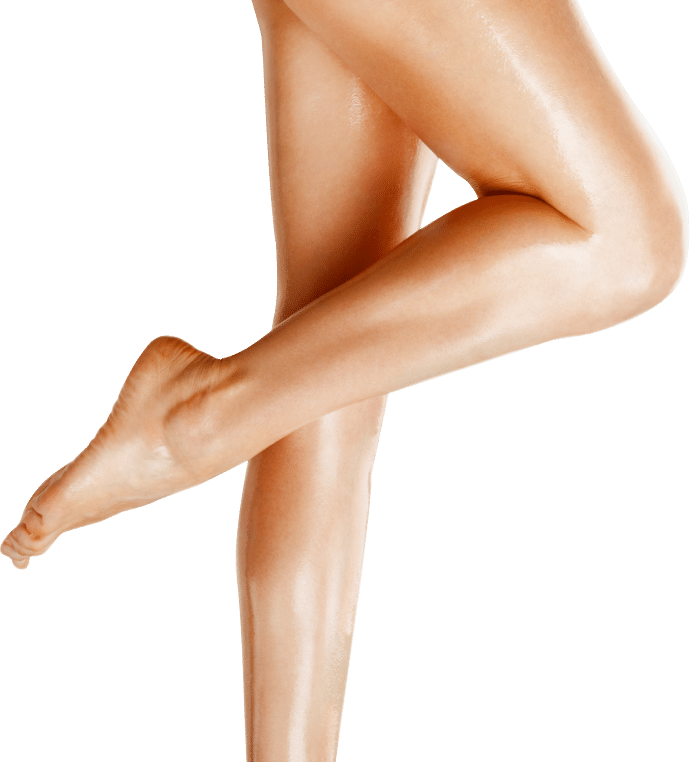
BOOK AN APPOINTMENT
Do you have any symptoms? Consult now with one of the Best Vein Specialist in New Jersey
The diseased vein is gradually reabsorbed by the body, and the accumulated blood reroutes into healthier leg veins, restoring healthy blood flow to the heart. This is one of the most effective minimally invasive treatments for varicose veins because it addresses the root cause of your vein problems — not just the symptoms. It has a nearly perfect success rate. Endovenous laser ablation is minimally invasive, with minimal pain and scarring. The procedure involves no downtime, so you can return to normal activities immediately.
#4. Radiofrequency Ablation
Radiofrequency ablation is a minimally-invasive procedure for numerous conditions, including venous insufficiency and varicose veins. Venous insufficiency is when the veins cannot adequately pump blood back to the heart. This can cause numerous problems, including pain, swelling, and skin problems. Radiofrequency ablation can treat this condition by closing off the defective veins and rerouting the accumulated blood into healthy veins.
Radiofrequency ablation is a minimally-invasive procedure performed in an outpatient setting. The treatment is typically performed using local anesthesia and takes less than an hour to complete. The procedure is performed by inserting a small catheter into the vein. The tip of the catheter is then heated to a temperature that destroys the vein. The destroyed vein is then reabsorbed by the body.
Radiofrequency ablation has several advantages over surgery. It is less invasive, so there is less risk of complications. It is also less painful and has a shorter recovery time than surgery.
#5. VenaSeal
Varicose veins are caused by valves in the veins that are not working properly. This can cause blood to pool in the veins and cause them to become enlarged and twisted. VenaSeal is a treatment that uses a medical adhesive to seal off the affected veins. This helps to redirect the blood flow to healthy veins and can improve symptoms such as pain, swelling, and fatigue.
VenaSeal is a minimally-invasive procedure that is performed using local anesthesia. A small incision is made in the skin, and a catheter is inserted into the vein. The medical adhesive is then injected into the vein and allowed to harden. This seals off the vein and prevents blood from flowing through it. There is no need for post-procedure compression stockings.
#6. Ambulatory Phlebectomy
Ambulatory phlebectomy is a minimally-invasive surgical procedure to remove varicose veins. Ambulatory phlebectomy is usually performed under local anesthesia, which numbs the area around the incisions. Your vein doctor will make several small incisions, usually less than 1 centimeter in size, in the affected area. A special hook or scissors is then used to remove the varicose veins through the incisions. The incisions are closed with stitches.
Ambulatory phlebectomy is a minimally-invasive procedure usually performed as an outpatient procedure, meaning you can go home the same day. It is less invasive than traditional surgery and has a shorter recovery time. Ambulatory phlebectomy is also less likely to cause scarring than traditional surgery. Ambulatory phlebectomy is one of the most effective procedures for superficial varicose veins because it provides instant results.
New Jersey Vein Treatment is a group of state-of-the-art medical centers specializing in minimally invasive varicose vein treatments in New Jersey. The vein doctor carefully examines your leg veins, discusses your goals and concerns, reviews your medical history, and curates a personalized vein treatment plan. Our considered approach to varicose vein treatment ensures safe and consistent results. You can find our medical centers for vein treatment in Clifton, Paramus, Woodland Park, and Woodbridge Township.
Please schedule an appointment at your nearest medical center for vein treatment in New Jersey.
NJ Vein Doctors
Meet our team of New Jersey Vein Treatment Specialists
Vein Treatments are covered by most major medical insurances, including Medicare. Call us today to verify your insurance for FREE >
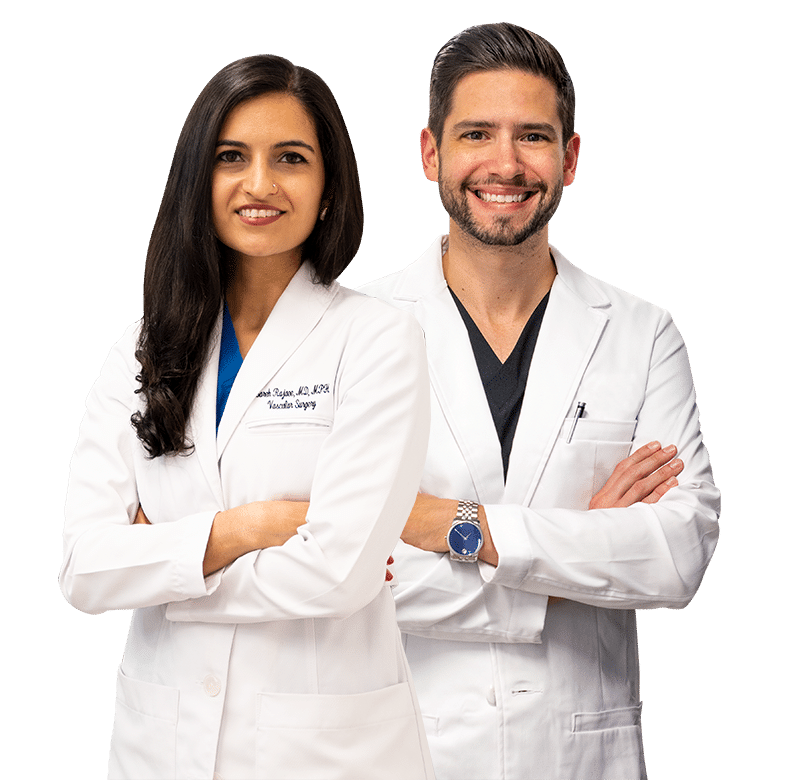
Meet our Team of Top Vein Specialists in New Jersey
Contact us
CALL US
Speak instantly with one of our team members; they will answer any questions you may have regarding insurance coverage, booking an appointment and our vein treatment locations. (973) 946-8082
BOOK APPOINTMENT
Visit our Book Appointment page and instantly request an appointment at the New Jersey vein center. We offer Free Insurance Verification before your appointment.
